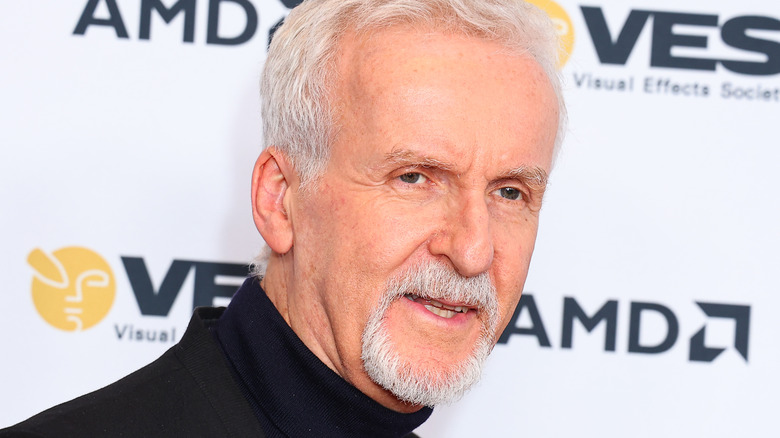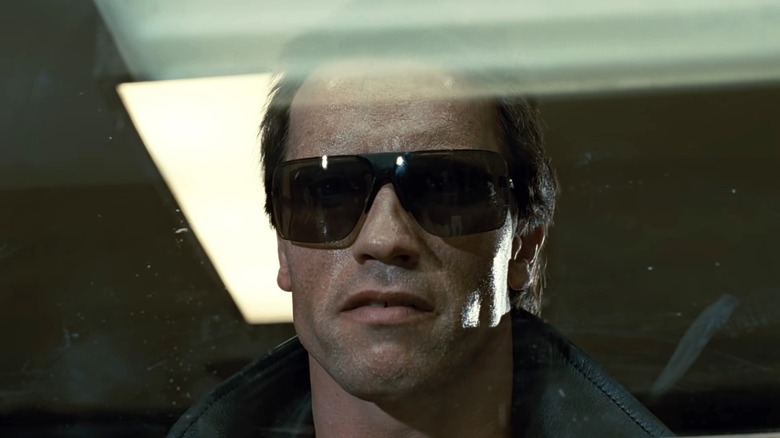The Terminator's James Cameron Isn't Afraid Of A.I. Replacing Writers Just Yet
The burgeoning technology of artificial intelligence and how it can potentially be used in showbiz is one of the main issues in the strikes by two of Hollywood's major labor unions. Yet, while actors are fighting studios over the threat of A.I. digitally replacing them in future productions, one of the entertainment industry's biggest voices is downplaying the idea of A.I. taking jobs from screenwriters.
James Cameron, who brought the chilling revelation of self-aware A.I. to the forefront with "The Terminator," believes that at this point, the technology is simply not advanced enough to rival what real writers can produce.
"I just don't personally believe that a disembodied mind that's just regurgitating what other embodied minds have said — about the life that they've had, about love, about lying, about fear, about mortality — and just put it all together into a word salad and then regurgitate it ... I don't believe that have something that's going to move an audience," Cameron told CTV News.
Still, the Oscar-winning director and producer of "Titanic" is taking a wait-and-see approach regarding the advancement of technology and whether it can't actually replace scribes. "Let's wait 20 years, and if an A.I. wins an Oscar for best screenplay, I think we've got to take them seriously," Cameron told CTV News.
In the interim, Cameron warned that a scenario akin to "The Terminator," which was inspired by his vivid dream more than four decades ago, is something that needs to be addressed.
Cameron says the weaponization of A.I. is 'the biggest danger'
James Cameron's observations about A.I. come at a unique time in Hollywood. Not only is it a big part of the conversation in the strikes by SAG-AFTRA and the WGA, his "Terminator"-like scenario of A.I. becoming a self-aware global threat is at the core of the plot of "Mission: Impossible – Dead Reckoning Part One."
"I warned you guys in 1984, and you didn't listen," the filmmaker told CTV News, alluding to his sci-fi film classic, "The Terminator."
In "Dead Reckoning Part One," Impossible Mission Force agent Ethan Hunt (Tom Cruise) and his allies are searching for two halves of a unique key that, when interlocked, becomes the only means of controlling The Entity — a weaponized, self-aware A.I. system threatening the entire globe. While the sequel doesn't feature an Arnold Schwarzenegger-like cyborg and a time-traveling soldier akin to Michael Biehn's Kyle Reese, Cameron said the threat of A.I. has become a real-life concept that needs to be taken seriously.
"I think the weaponization of A.I. is the biggest danger," Cameron told CTV News. "I think that we will get into the equivalent of a nuclear arms race with A.I., and if we don't build it, the other guys are for sure going to build it, and so then it'll escalate."
As such, once the use of A.I. as a weapon in war becomes a reality, it will be difficult to control, Cameron explained. "You could imagine an A.I. in a combat theater, the whole thing just being fought by the computers at a speed humans can no longer intercede, and you have no ability to de-escalate," the filmmaker told CTV News.

